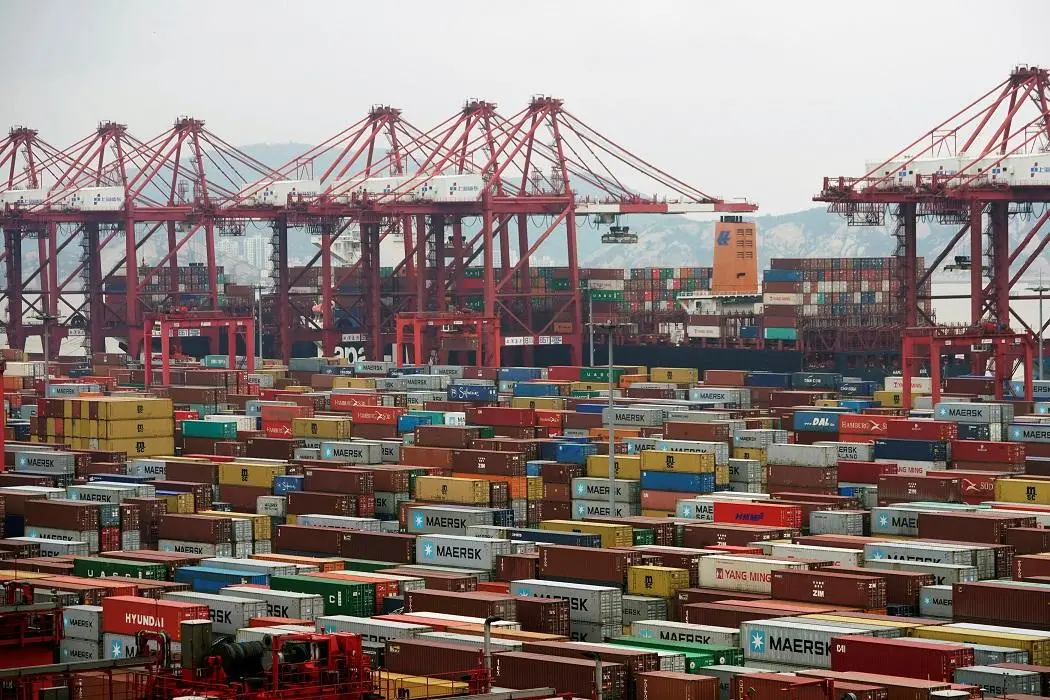PHOTO
BENGALURU - A synchronised global economic slowdown is under way and any escalation in the U.S.-China trade war would trigger a sharper downturn, according to Reuters polls of hundreds of economists from around the world.
That is a major shift in sentiment from just a year ago, when economists were optimistic about a significant global upturn. But an escalation in trade tensions and tightening financial conditions have hurt activity in most economies and dragged China’s growth last year to the weakest in 28 years.
Reuters surveys over the past two years have repeatedly highlighted trade protectionism as one of the prominent downside risks for the global economy.
In the latest Reuters polls of more than 500 economists taken this month, growth this year was cut for 33 of 46 economies the respondents were asked about and left unchanged for 10. Predictions for only three smaller economies were marginally upgraded.
The outlook for inflation this year was trimmed for most economies too, with lower lows and lower highs.
Over half of nearly 270 economists who answered an additional question said a further escalation in the U.S.-China trade war will likely trigger an even sharper global economic slowdown this year.
With a March 1 deadline set by the White House for an agreement or risk of an escalation of tariffs on another $200 billion worth of Chinese goods, both U.S. President Donald Trump and Chinese President Xi Jinping are still far apart on key structural elements critical for a deal.
Those concerns coincide with a growing sense of unease among market experts polled by Reuters who have consistently lowered their forecasts for various asset prices over the past few months, from stock indexes to bond yields to oil.
“Irrespective of the ‘truce’ between Presidents Trump and Xi at their December meeting, trade frictions are likely to weigh on activity in 2019,” noted Janet Henry, global chief economist at HSBC.
“Further tariff increases have been postponed, but there has been no mention of the existing tariffs being lifted and the possibility of U.S. tariffs being imposed on autos is still on the table.”
Despite a 90-day truce reached in early December and Trump saying trade talks with China are going well, concerns over the conflict have continued.
“Don’t tell me anyone is really buying the drivel that a ‘great deal’ is imminent between the U.S. and China on trade, we are in the early stages of a new Cold War,” noted Jan Lambregts, global head of financial markets at Rabobank.
The global economy is forecast to expand 3.5 percent this year, the second straight cut to the 2019 outlook after it was downgraded in the previous survey for the first time since polling began for that period in July 2017. In the last poll it was 3.6 percent.
That 3.5 percent lines up with the International Monetary Fund’s growth outlook released ahead of the World Economic Forum in Davos, which highlighted the challenges policymakers face as they tackle the risk of a serious slowdown.
Major central banks, too, have changed tack on their monetary policy path as they wind down crisis-era measures while still facing an array of daunting risks.
Despite predicting two rate hikes this year, in line with the Federal Reserve’s own dot plots, economists now expect the U.S. central bank to take rates higher in the second quarter instead of the first, with a significant minority forecasting either one hike or none.
A sharp slowdown in euro zone economic growth became more prominent after Europe’s top economy, Germany, barely skirted a recession in the second half of last year. That has increased the prospect for policy normalisation to be delayed.
“Global growth looks set to fall to its weakest pace since the financial crisis as slowdowns in the euro zone and China continue and the U.S. soon joins the mix,” said Andrew Kenningham, chief euro zone economist at Capital Economics.
“U.S. monetary policy tightening is pretty much over and the ECB seems set to miss the boat altogether in this cycle. Indeed, it won’t be long before policy loosening comes back on the agenda.”
But it is not just developed economies. Growth in emerging markets were also forecast to take a hit this year.
And in an extraordinary U-turn in policy, the Reserve Bank of India was forecast to cut interest rates by mid-year, compared to a rate hike predicted just a month ago.
“Markets are rightly still alert to the potential for a bigger growth hit from the trade frictions, but fears regarding the inflation outlook have eased back since early October,” added HSBC’s Henry.
“The broader question is when considering how to respond to another economic downswing is which countries can increase leverage even as others are forced to retrench.”
Analysis and additional reporting by Indradip Ghosh and Mumal Rathore in Bengaluru; Polling and reporting by the Reuters Polls team in Bengaluru and bureaus in Shanghai, Tokyo, London, Milan, Paris, Oslo, Istanbul, Johannesburg, Toronto, Brasilia, Mexico City, Lima, Buenos Aires, Bogota, Caracas and Santiago; Editing by Ross Finley and Alison Williams
© Reuters News 2019





















